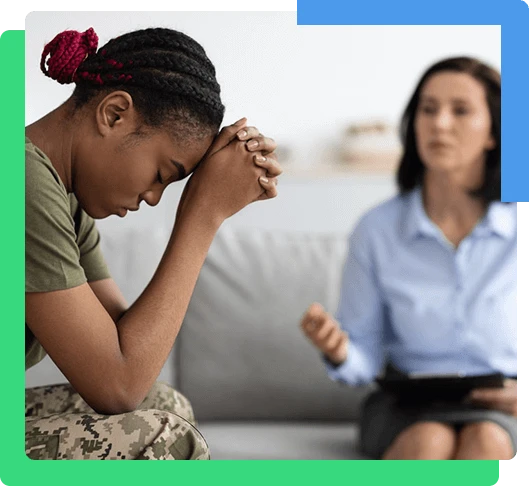Anxiety

Anxiety Specialist
Anxiety Q & A
What is anxiety?
Anxiety disorders are a group of mental health conditions that cause intrusive and disproportionate fears and worries that can lead to abnormal behaviors and disrupt your ability to function in your day-to-day life.
For example, some common signs of anxiety include:
- Disproportionate and uncontrollable worries and fears
- Feeling on-edge or restless
- Increased irritability
- Muscle tension
- Insomnia
- Reduced concentration and decision-making
Generalized anxiety disorder (GAD) is the most prevalent type of anxiety disorder. GAD causes excessive worries about everyday situations such as personal health, social interactions, or work on a daily basis. GAD also triggers behavioral abnormalities that can cause problems at school, work, or socially.
Other common types of anxiety disorders include social anxiety, separation anxiety, and panic disorder. Anxiety also often co-occurs with other mental health conditions like depression and post-traumatic stress disorder (PTSD).
When should I talk to a psychiatrist about anxiety?
Everyone feels anxious occasionally — it’s a normal human reaction to stress or danger. However, if your anxiety is persistent, distressing, and interfering with your ability to function in your day-to-day life, you should make an appointment at Esperanza Behavioral Health and Services.
Anxiety is a treatable condition, and you don’t need to live with your negative feelings and thoughts.

How is anxiety treated?
At Esperanza Behavioral Health and Services, anxiety treatment begins with a psychiatric evaluation of your condition. Once your provider evaluates your needs, they create a personalized treatment to address them.
In most situations, your provider recommends a combination of medication and counseling.
Medication
Counseling
Esperanza Behavioral Health and Services offers both individual and group therapy sessions. Psychotherapy provides a safe and nurturing environment where you can explore your anxiety and learn to identify your triggers.
As you learn to recognize the emotions that lead to your negative thoughts and behaviors, you also develop coping strategies. Over time, you learn to change the way you respond to your anxieties and regain your quality of life.
